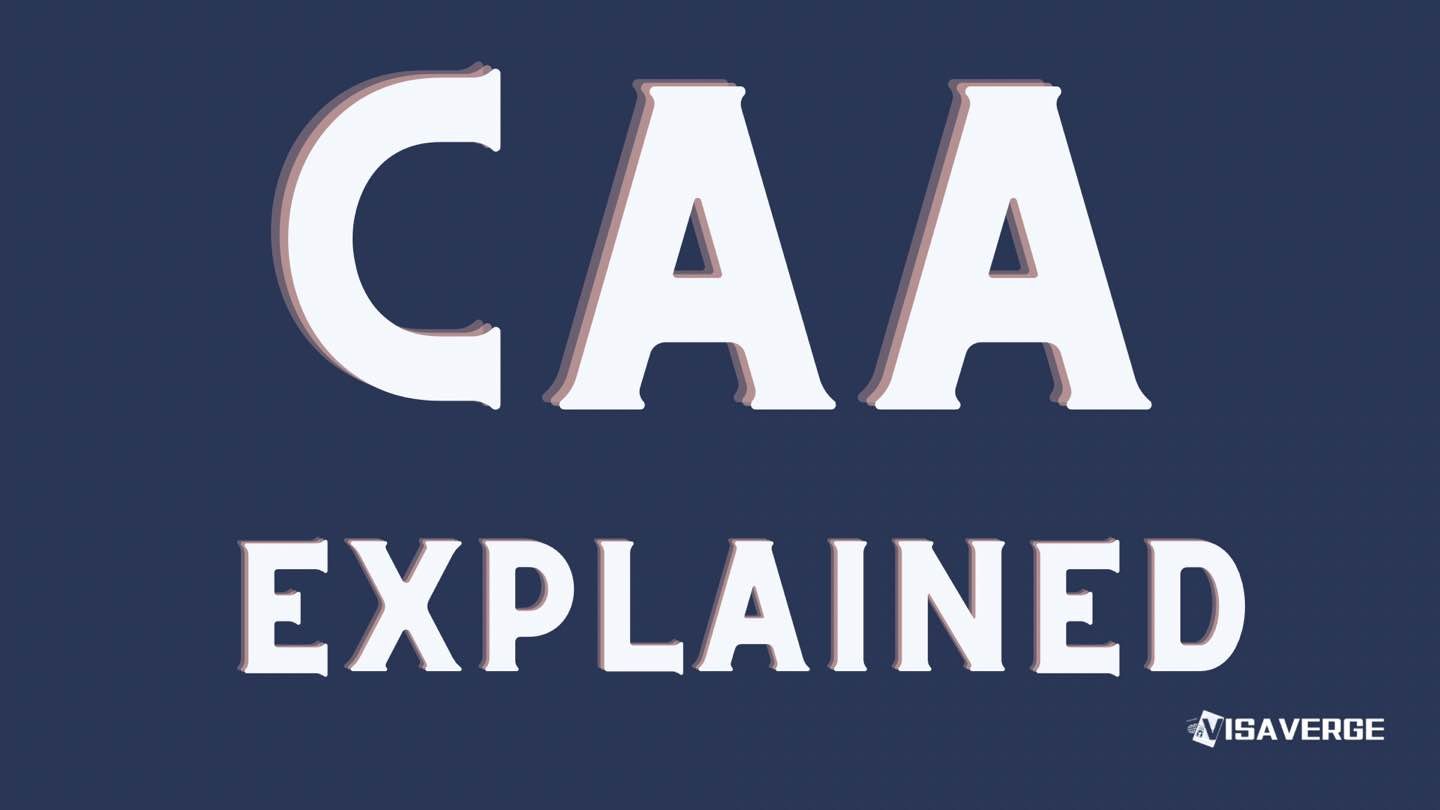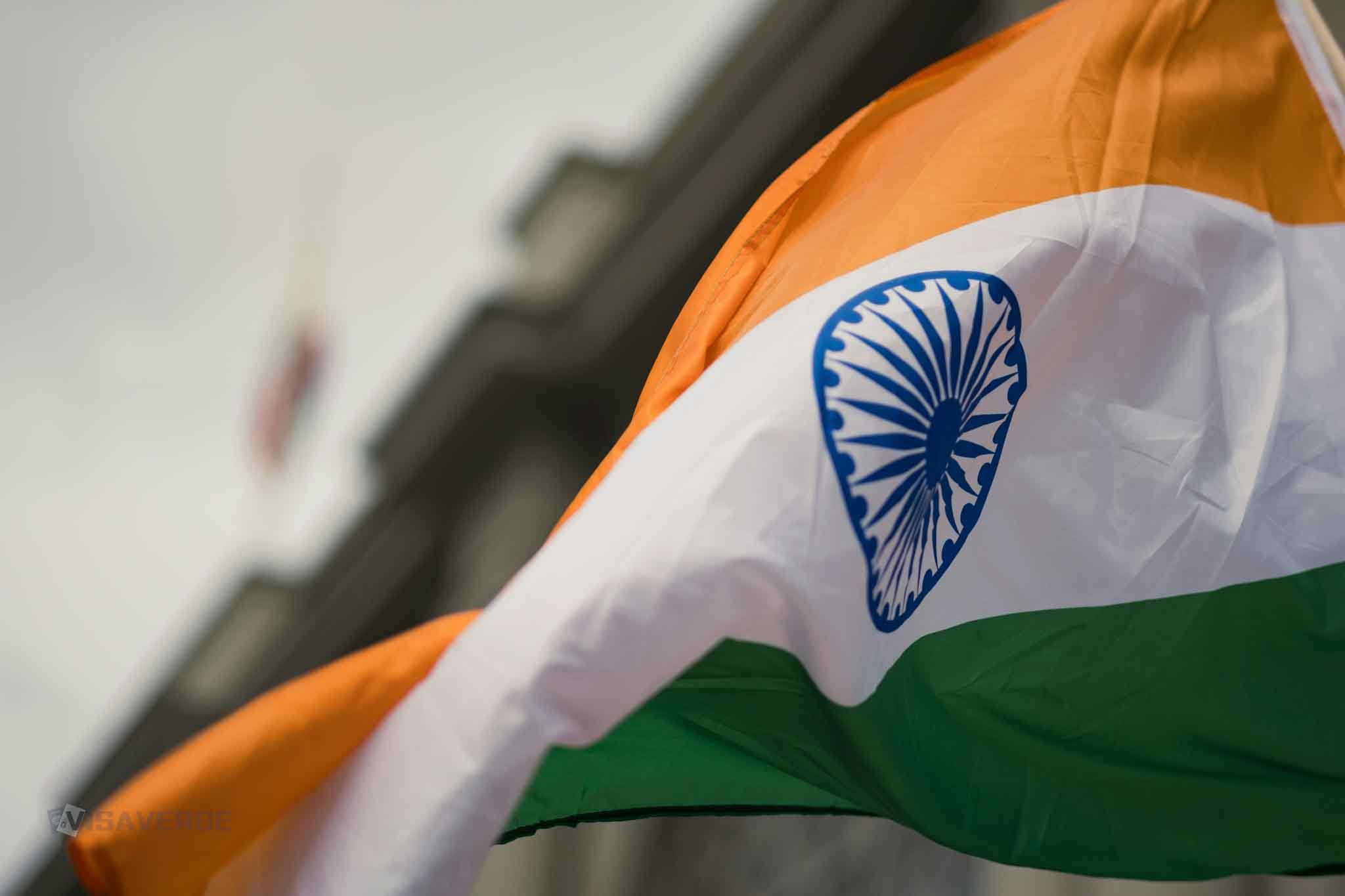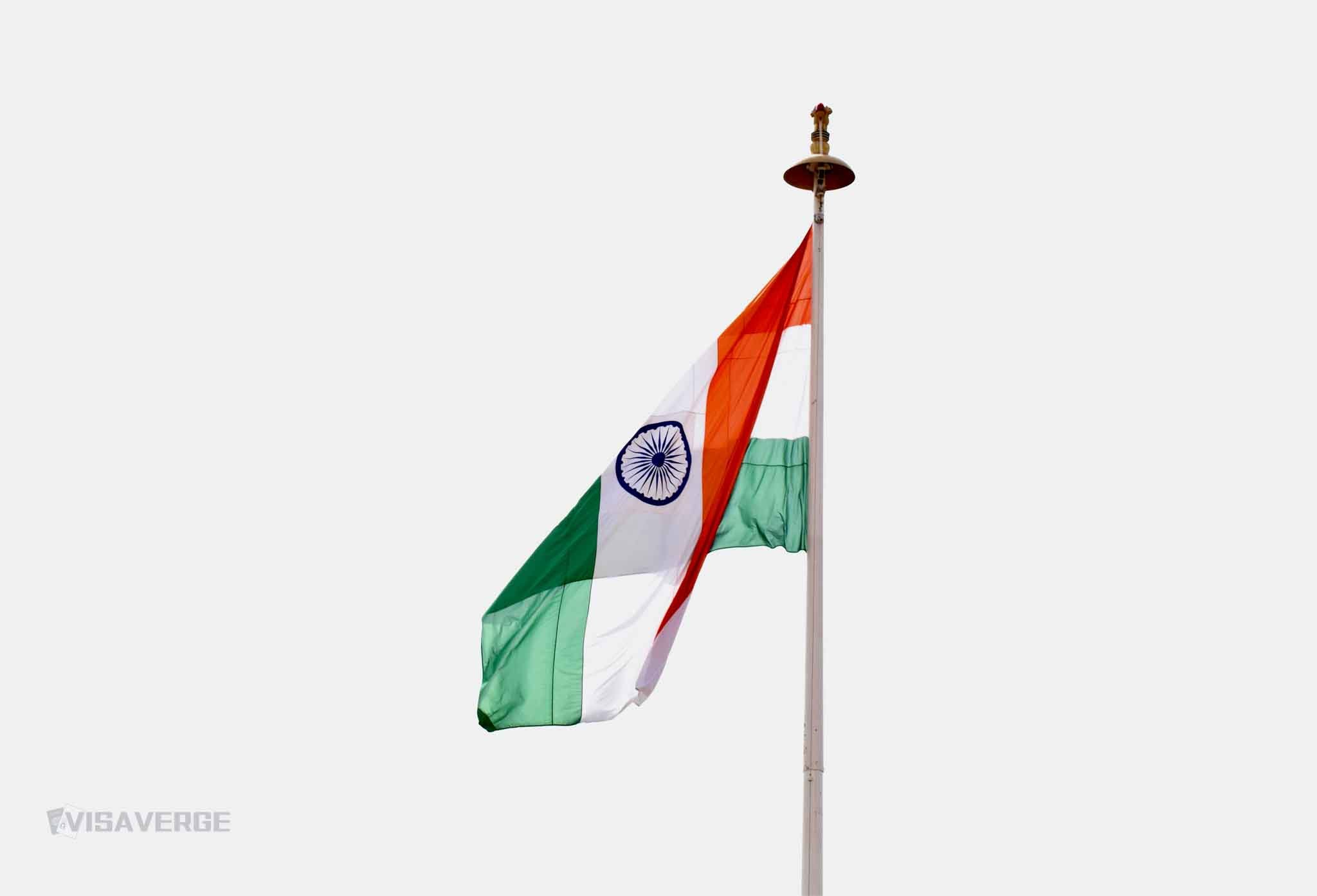The Citizenship Amendment Act (CAA) stands as one of the most talked-about laws in India’s 🇮🇳 modern history. After years of delays and heated debate, the government announced the law’s official rules on March 11, 2024. This move finally turned the CAA from a proposed idea into something people can use. The law promises citizenship to certain groups of migrants, but it has also brought more tension and questions about fairness and the future of the country.
What Is the Citizenship Amendment Act?

The Citizenship Amendment Act, often called CAA, is a change to India’s 🇮🇳 old citizenship law from 1955. The basic idea is simple: the CAA gives a faster and easier way to get Indian citizenship for some groups of people from three neighboring countries—Afghanistan 🇦🇫, Bangladesh 🇧🇩, and Pakistan 🇵🇰. It does this by lowering the required waiting time from eleven years to just six years. To apply, people must have entered India 🇮🇳 by December 31, 2014.
But there’s a catch. The law only helps people from six religious groups: Hindus, Sikhs, Christians, Buddhists, Jains, and Parsis. That means Muslims who may also have faced problems in those countries are left out. The Indian 🇮🇳 government says the law is meant to help people who were being treated badly in countries where these six groups are minorities.
CAA Rules Announced on March 11, 2024
After Parliament passed the Citizenship Amendment Act in December 2019, the law sat on the shelf for years. During this time, the government kept promising to share the “rules”—that is, the instructions for using the law—but those kept getting delayed. Finally, on March 11, 2024, the rules were made public. Now, migrants who qualify under the CAA can apply for citizenship online.
Applications are managed on an online portal run by the Ministry of Home Affairs. People can fill out their forms, upload documents, and get updates about their application status. This step has made the process more open and less scary for migrants who may not have all their official papers.
Who Qualifies Under the CAA?
According to the new rules, the following people can apply:
- They must come from Afghanistan 🇦🇫, Bangladesh 🇧🇩, or Pakistan 🇵🇰.
- They must belong to one of these six religious groups: Hindu, Sikh, Christian, Buddhist, Jain, or Parsi.
- They must have arrived in India 🇮🇳 on or before December 31, 2014.
- They do not need to have a valid passport or visa. Instead, they can use other papers to show they really came from one of these countries and entered on time.
This is a big deal. Usually, anyone applying for Indian citizenship must have a passport or a visa. By accepting other kinds of papers, the government is making it easier for people who left their home countries in a hurry or who lost their documents.
The government said before the rules were published that “over thirty thousand immediate beneficiaries stand poised for relief through regularization.” This means about thirty thousand people could get help right away under the Citizenship Amendment Act.
Who Is Left Out?
Many people believe the law is unfair, especially because it does not help Muslims who may be suffering for other reasons. For example, there are Muslims in these countries who belong to smaller groups or who face pressure because of their beliefs. They cannot use the CAA to become Indian citizens quickly.
Some areas inside India 🇮🇳 are also not included in the CAA. Tribal areas that are protected by the Indian Constitution, and regions governed by “Inner Line” Permit rules—like parts of Assam, Meghalaya, Mizoram, and Tripura—are not covered by this law. This means people living in these places follow different rules, mostly to protect local cultures and communities.
How Does the New Citizenship Process Work?
The new citizenship process, active since March 11, 2024, now goes like this:
- Online Registration: The migrant fills out an application on the official website of the Ministry of Home Affairs.
- Document Check: The person is told when and where to show original documents. They must bring anything they have to prove their identity and background.
- Oath Taking: Once the papers check out, the migrant swears an oath of loyalty to India 🇮🇳.
- Security Review: The papers go to a special committee that looks into the background and checks for any possible security issues.
- Approval: If everything is fine, approval is given.
- Certificate Issued: The new citizen gets a digital certificate. If they want, they can also ask for a printed version.
Throughout this process, people can get help from hotlines and email support set up by the government. This is important because many in this group come from tough backgrounds and may find the online system hard to use.
For more information about the official process and the online application, you can visit the Ministry Of Home Affairs – Indian Citizenship Online Portal.
Political and Social Reactions
The Citizenship Amendment Act has divided opinion across India 🇮🇳 and the world. After the law was passed in 2019, protests broke out in cities and on university campuses. When the government announced the rules on March 11, 2024, protests started up again, showing that many people remain deeply upset about the law.
Several Indian 🇮🇳 states have said flatly that they will not help put the CAA into action. Kerala’s Chief Minister Pinarayi Vijayan, for example, promised that “the CAA will not be implemented” in his state. Opposition politicians have said the government is playing politics by bringing in the rules just before elections, possibly hoping to win votes by dividing people.
Groups that speak up for human rights and international organizations have also criticized the Citizenship Amendment Act. As reported by VisaVerge.com, bodies like Amnesty International and the United Nations have raised concerns about how the CAA leaves out Muslims. They warn that making religion a requirement for citizenship may break rules that say everyone should be treated fairly.
- Amnesty International said: “The operationalization [of CAA] is a poor reflection on Indian authorities… failing multitudes critical voices across civil society…”
- The United Nations High Commissioner said: “[It] fosters religious discrimination… a breach of international human rights obligations.”
These groups also worry that when the CAA is tied together with things like the National Register of Citizens, it could lead to many people—mostly Muslims—becoming stateless, being locked up, or forced to leave the country.
Supreme Court Challenges
With more than two hundred legal petitions already filed, the Supreme Court of India 🇮🇳 is at the center of the CAA storm. The main argument is that picking and choosing who gets citizenship based on religion goes against Article 14 of India’s Constitution, which says everyone is equal under the law.
People also say that the CAA does not fit with earlier promises made in the Assam Accord. The Assam Accord was an agreement that wanted to keep the state’s culture safe by controlling migration but did not set rules based on religion.
As of April 18, 2025, there is no final decision from the Court. Hearings are still going on, and everyone is watching to see what will happen next. If the Court rules that the law is not allowed, it could be sent back to Parliament to fix. If it says the law can stay, protests may get even louder.
New Rules for Overseas Citizens of India (OCI)
The Citizenship Amendment Act does not just affect people living inside India 🇮🇳. It also changes the rules for Overseas Citizen of India card holders. OCI cards give some rights to people of Indian origin who have become citizens of other countries.
Now, the government can take away OCI cards for more reasons, including things like taking part in protests or saying things against government policy. This is a big shift, and it means that more than one hundred OCI cards have been taken away between 2014 and May 2023, often from journalists or people critical of the government.
Changes for Migrants: Statistics and Daily Life
Since March 11, 2024, the number of people starting citizenship applications has shot up—though the government has not shared full numbers yet. The first groups to benefit are likely those who have waited the longest or are most desperate to get citizenship.
However, experts warn that with new citizens, some areas—especially states close to the borders—will see changes in their population makeup. This could lead to new challenges for schools, health care, and jobs. Some longtime residents worry about having to share limited resources, especially after the struggles of the pandemic.
At the same time, the CAA gives real hope to thousands. Becoming a citizen opens doors to rights and help that only citizens get, like voting or getting a government job. It is also likely to be a huge relief for families who have lived in the shadows for years.
Ongoing Controversy and the Road Ahead
The biggest problem many see with the Citizenship Amendment Act is that it sets different rules for people based on religion. Many critics say this is not what India 🇮🇳 is about. The country has always called itself both “secular”—meaning there is no official state religion—and “plural,” a place for many different communities.
Because of these concerns, both protests and legal fights continue across India 🇮🇳. State governments, political parties, students, and community groups are all taking sides. Some want the law thrown out, while others see it as keeping a promise to groups who have faced unfair treatment abroad.
Analysts expect that arguments and court cases will go on through the year, especially because national elections are close. How the CAA ends up being used will shape not just the lives of those who apply but also the idea of what it means to be Indian 🇮🇳 in the years to come.
Key Summary Points
- The Citizenship Amendment Act (CAA) was passed in December 2019 but only came into full effect when rules were announced on March 11, 2024.
- It gives a faster path to citizenship for six non-Muslim groups from Afghanistan 🇦🇫, Bangladesh 🇧🇩, and Pakistan 🇵🇰 who entered India 🇮🇳 before January 1, 2015.
- The law has sparked large protests and strong political opposition, especially because it leaves out Muslims and does not apply to all parts of India 🇮🇳.
- The process is fully online, with relaxed document rules, and thousands have already begun to apply.
- The Supreme Court is still deciding if the law fits with India’s 🇮🇳 Constitution, with more than two hundred legal challenges waiting.
- The changes also make it easier for the government to cancel Overseas Citizen of India cards, especially for people critical of the government.
- Many international groups have criticized the law, saying it goes against the idea of treating everyone fairly regardless of religion.
- The long-term effects on society, law, and daily life are still unknown.
If you want more details or need help with an application, you should check the Ministry Of Home Affairs – Indian Citizenship Online Portal, which has the latest instructions and updates.
As India 🇮🇳 moves ahead with this law, the world is watching closely to see how it shapes the future for both old and new citizens. The Citizenship Amendment Act remains a symbol of hope for some, and a source of worry for others, as the country decides what kind of nation it wants to be. The journey that began with the rules published on March 11, 2024, underlines the law’s lasting effect and ongoing debate. How things turn out will depend on actions taken by the government, courts, and people of India 🇮🇳 over the coming months and years.
Learn Today
Citizenship Amendment Act (CAA) → A 2019 Indian law fast-tracking citizenship for non-Muslim migrants from Afghanistan, Bangladesh, and Pakistan, effective March 2024.
Overseas Citizen of India (OCI) → A special status allowing foreign citizens of Indian origin limited rights in India, subject to government revocation.
Inner Line Permit → A government document restricting access to certain protected regions in northeast India, excluded from CAA provisions.
Assam Accord → A 1985 agreement to protect Assam’s identity by limiting illegal migration, often cited in CAA debates.
Article 14 (Indian Constitution) → A constitutional guarantee that every person in India is equal before the law and deserves equal protection.
This Article in a Nutshell
India’s Citizenship Amendment Act (CAA) officially took effect on March 11, 2024, easing citizenship for select religious minorities from Afghanistan, Bangladesh, and Pakistan. Although offering hope to thousands, the law excludes Muslims and sparked nationwide protests, deepening debates about fairness, secularism, and India’s future identity amid ongoing legal and political challenges.
— By VisaVerge.com








